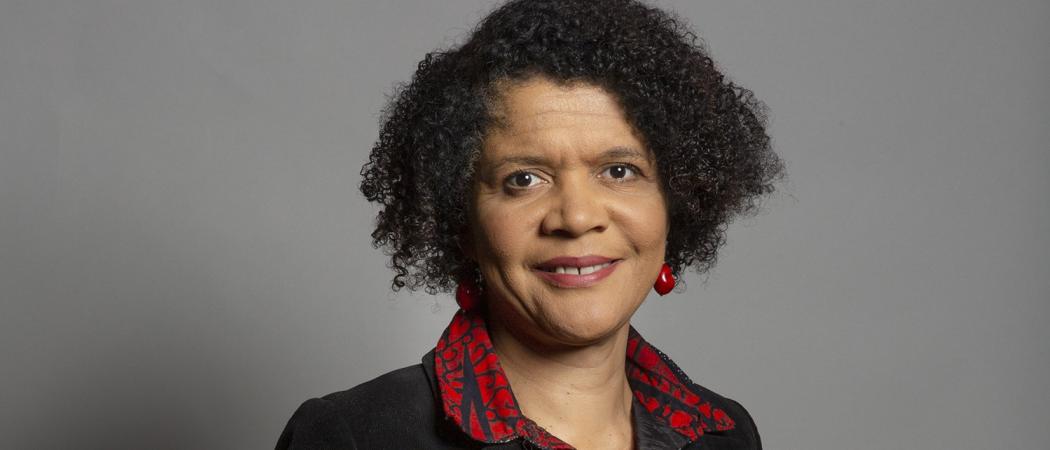Shadow industrial strategy minister tells Science|Business she has doubts about proposed new funding agency and says it will be ‘a failure’ if UK doesn’t participate in future EU research programmes

Chi Onwurah, shadow minister for business, energy and industrial strategy. Photo: UK parliament.
A UK version of the US Advanced Research Projects Agency risks being “a toy” for government, according to Chi Onwurah, shadow minister for business, energy and industrial strategy, who says the proposal, “Does seem like a way of moving control out of existing institutions and into Whitehall.”
“It’s got to be about more than having an organisation Dominic Cummings can call his own,” Onwurah told Science|Business, referring to prime minister’s Boris Johnson’s chief adviser, one of the architects of Brexit, and the main driving force behind British ARPA, or BARPA.
Details of the new research agency, which is promised £800 million over five years to stimulate new, emerging and high-risk science and technology, were first announced a year ago.
The feted ARPA organisations in the US claim credit for such technologies as the global positioning system and the internet. The DARPA focuses on advanced technologies for national defence. A similar model, called ARPA-E, funds advanced technologies for energy. They have no labs, test ranges, or long term career employees, but have resources to tap into university, industry and government research institutes, to pull together teams to complete specific projects.
US presidential hopeful Joe Biden has promised a new addition to the ARPA family focused solely on addressing climate change, to be called ARPA-C.
“There’s a lot to be said for having focused, mission-led research, particularly in health and climate change,” said Onwurah. But it’s not yet clear if ARPA can be successfully imported into the UK. “The US versions have significant funding,” she said. The DARPA budget is some $3.5 billion a year, whereas a UK counterpart will begin life with several hundred million pounds a year.
The shadow industry chief is also concerned the new agency would compete with existing funding bodies. A recent big restructuring of research funding in the UK saw a merging of funding sources into the UK Research and Innovation Agency (UKRI).
Former science minister Jo Johnson has already warned that the new BARPA could be “destructive”, while the recently retired head of UKRI, Mark Walport, has said it would replicate what UKRI does.
“Science needs a long-term, coherent investment, which might include ARPA, but should not include something [that is] a toy of No 10 [Downing Street]. Science is forever, not just for election time,” Onwurah said.
It is difficult to weigh up initiatives like BARPA amid uncertainty over the UK’s place in future EU research programmes. The government is committed to provide more funding for science and technology, but critics say the damage to research caused by a no-deal Brexit would outweigh any benefits.
“The government promised us a really easy trade deal with the EU. Instead, we’re in November and we don’t know if we’re going to be a member of Horizon Europe [the EU’s 2021-2027 research programme],” said Onwurah. “I think the way the government has conducted negotiations has not always created good faith with the other side.”
There’s two weeks until the mid-November deadline that both sides have identified as the limit by which a deal needs to be struck.
The government is in talks to continue within the €90-odd billion EU science programme, but UK university groups and officials warn that the entry fee could prove too expensive, with one calculation saying it could cost the UK about £3 billion over seven years.
Since the 2016 referendum result, the number of UK applications to Horizon 2020, the programme expiring at the end of the year, has fallen drastically because of the uncertainty of the UK's continued involvement. In 2015, there were 19,127 UK applications. In 2018, this had fallen by 39 per cent to 11,746.
The UK's current strength in science depends on continued collaboration with Europe, Onwurah said. “Obviously, there’s a price beyond which it would not be value for money. But you have to take into account the value of the ecosystems we’d be leaving. It’s a failure of negotiation and engagement if it doesn’t happen.”
Post-Brexit science
The shadow minister criticised the government for not doing more to ensure the UK remains an attractive destination for science and technology talent after it leaves the EU.
“The government’s rhetoric on immigration and high level skills has caused concern for many. Because it’s not only researchers you need here; it’s technicians and their families too,” she said.
An area Onwurah would like to see get more attention is contracts for early stage researchers. “Short term contracts pose particular challenges for women. We’d like to see a more demographically diverse science base,” she said.
As an MP representing Newcastle in the north east of England, she’d also like to see more geographical diversity, bemoaning “the concentration of funding in the golden triangle” of London, Cambridge and Oxford, in the south east.
Speaking ahead of the US presidential election, Onwurah did not say if she had a preferred winner. But she added, “It’s clear that Trump’s engagement with foreign countries hasn’t always supported good international governance and trade. He has also not always shown a respect for science, or following the science.”





 A unique international forum for public research organisations and companies to connect their external engagement with strategic interests around their R&D system.
A unique international forum for public research organisations and companies to connect their external engagement with strategic interests around their R&D system.